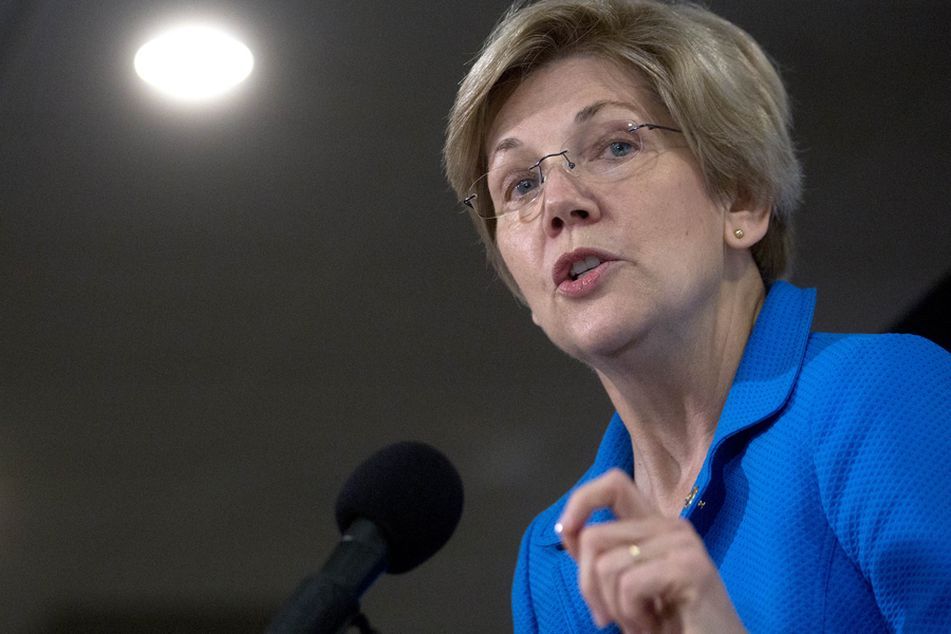Sen. Warren, Rep. Cummings accuse financial industry of crying wolf on DOL fiduciary
 Sen. Elizabeth Warren
Sen. Elizabeth Warren
The Massachusetts senator and Rep. Elijah Cummings, D-Md., assert four large insurance companies are telling regulators and shareholders different tales.
Wall Street critics in Congress are accusing the financial industry of talking out of both sides of its mouth when it comes to a pending Labor Department rule that would raise investment advice standards for retirement accounts.
Sen. Elizabeth Warren, D-Mass., and Rep. Elijah Cummings, D-Md., assert that four large insurance companies — Jackson National Life Insurance Co., Lincoln National, Prudential Financial and Transamerica Corp. — have been lamenting to the agency that the rule is complex and costly while telling shareholders it will have little impact on their businesses.
In a Feb. 11 letter to DOL Secretary Thomas Perez and Shaun Donovan, director of the Office of Management and Budget, the lawmakers cite comment letters from the companies that call the rule “immensely burdensome” and a “significant challenge” that could lead to “increased compliance costs.”
But the lawmakers note that in May 2015, Lincoln chief executive Dennis Glass said on an earnings call, “We don’t see [the rule] as a significant hurdle for continuing growth to the business.”
They also highlight an August 2015 earnings call in which Prudential executive vice president and chief operating officer Stephen Pelletier asserted that the company’s “market position, our mix of businesses and the strengthening of our franchise will help us to adapt to any regulatory framework that emerges.”
Ms. Warren and Mr. Cummings said the companies are obligated to tell shareholders the truth, although they have more latitude in what they say to regulators.
“Contrary to their dire and unsupported public predictions and official comments to the Department of Labor about the impact of the proposed Conflicts of Interest rule, insurers and financial firms provide much more optimistic assessments when they speak to their own investors and are required by law to provide accurate reports of material information,” wrote Ms. Warren, a member of the Senate Banking Committee, and Mr. Cummings, a member of the House Oversight and Government Reform Committee.
The lawmakers added: “As you work to finalize the rule, we hope that you will make careful note of these statements.”
Prudential said its ability to respond to the rule is distinct from the potential damage the rule will cause.
“As we have said consistently, the Department of Labor fiduciary rule could have the unintended consequence of limiting client access to financial advice and retirement solutions,” Prudential spokesman Scot Hoffman said in a statement. “We have a business mix and business strategies that enable us to navigate that potential disruption better than most of our competitors, but that does not lessen our concerns about unintended consequences for American households.”
In the letter, Ms. Warren and Mr. Cummings argued that Transamerica was being inconsistent by saying in a comment letter that the rule was “unworkable,” while Alex Wynaendts, chief executive of Transamerica’s parent company, Aegon N.V., told investors in August that the company would be able to “adjust” to the rule.
Transamerica stands by its criticism of the rule, said spokesman Gregory Tucker.
“Mr. Wynaendts’ comments to shareholders in no way contradicts Transamerica’s view,” Mr. Tucker said in a statement. “Rather, speaking on behalf of Aegon, which operates in 25 markets internationally and in diverse regulatory environments, he noted that its companies have managed to adjust to various market requirements. Transamerica is committed to preserving its ability to provide customers with the full range of essential services they require to achieve long-terms financial security and continues to hope the final rule will enable us to do so in the best interests of our customers.”
Officials for the other two companies were not immediately available for comment.
Introduced last year, the final rule was sent to OMB in late January for review. It likely will be released publicly in March or April, giving the Obama administration enough time to implement it before the end of its term.
The rule has been the source of a fierce lobbying battle. President Barack Obama has said the rule is needed to protect workers and retirees from conflicted advice that increases their investment costs and erodes savings. Opponents say the rule will significantly increase liability risk and regulatory costs for financial advisers and force them to abandon clients with small accounts.
Learn more about reprints and licensing for this article.








